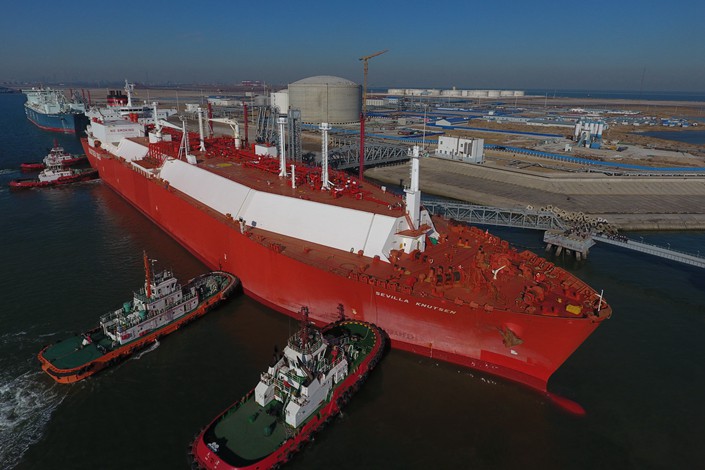State-Owned Offshore Oil Firm Ready to Invest $3 Billion More in Nigeria

China’s state-owned offshore oil and gas producer said it is ready to invest another $3 billion into expanding its operations in Nigeria as it looks to exploit some of Africa’s richest oil and gas reserves.
China National Offshore Oil Corp. (CNOOC) has already invested $14 billion in developing Nigeria’s energy resources, making the country CNOOC’s largest investment destination, according to state-owned Nigerian National Petroleum Corp. The Chinese firm is now looking to improve productivity at its existing joint-venture sites, according to a news release issued by Nigerian National Petroleum.
CNOOC CEO Yuan Guangyu described the company’s Nigeria investment as its “most strategic and important overseas business undertaking,” according to the release. CNOOC’s involvement in the country’s oil and gas reserves goes back to 2003, when it bought a 45% stake in the OML 130 deepwater block, in what was reported to be the company’s first major overseas investment. It also owns 20% and 18% stakes in two other Nigerian offshore fields.
Nigeria’s energy sector has suffered from a lack of investment despite its abundant oil and gas supplies, with a dearth of capacity in distribution infrastructure a particular challenge, according to a 2016 government report.
Yet endemic corruption has weighed on investor confidence in recent years, according to David Bruckmeier, an analyst with AKE International. “Recent high-profile bribery scandals allegedly involving oil majors like Royal Dutch Shell PLC and Eni SpA are typical of the underhand dealings that have plagued the energy sector, and too frequently facilities are disrupted by attacks from armed groups,” Bruckmeier said.
China appears set to overtake Japan as the world’s biggest gas importer this year, and resource-rich Nigeria would appear to be a natural partner in supporting its needs. Historically, however, Western oil majors have been more active in the country’s energy sector, with Beijing preferring to foster ties with Angola instead, said Jeremy Stevens, chief China economist at South Africa’s Standard Bank.
“More needs to be done to inject life into the Nigeria-China relationship, and this $3 billion investment is a step in the right direction,” Stevens said. “Granted, China exported a sizeable $5.4 billion to Nigeria last year, but that is nearly half as much as just four years ago. Nigeria needs to welcome Chinese oil majors to invest in the country, develop domestic assets and engage materially in developing the economies of local communities.”
Nigeria is likely to become an increasingly important country for Chinese investment due to its rapidly growing population that already accounts for 1 in 7 Africans, Stevens said.
There are signs of growing interest. In May, Nigeria awarded a $6.7 billion contract to China Railway Construction Corp. to build a segment of a 1,315-kilometer (817-mile) railway, marking another milestone in China’s infrastructure venture in Africa.
As its population swells and it urbanizes rapidly, Nigeria’s infrastructure will be put under increasing strain, Stevens said. “Further inward investment like that from CNOOC will prove critical,” he added.
Contact reporter Ke Dawei (daweike@caixin.com)

- 1Cover Story: China Carves Out a Narrow Path for Offshore Asset Tokenization
- 2Drownings Shake Chinese Enthusiasm for Travel to Russia
- 3China Business Uncovered Podcast: A $15 Billion Bitcoin Seizure and the Fall of a Cybercrime Kingpin
- 4Over Half of China’s Provinces Cut Revenue Targets
- 5Li Ka-Shing’s Port Empire Hit by Forced Takeover Amid Panama Legal Dispute
- 1Power To The People: Pintec Serves A Booming Consumer Class
- 2Largest hotel group in Europe accepts UnionPay
- 3UnionPay mobile QuickPass debuts in Hong Kong
- 4UnionPay International launches premium catering privilege U Dining Collection
- 5UnionPay International’s U Plan has covered over 1600 stores overseas





